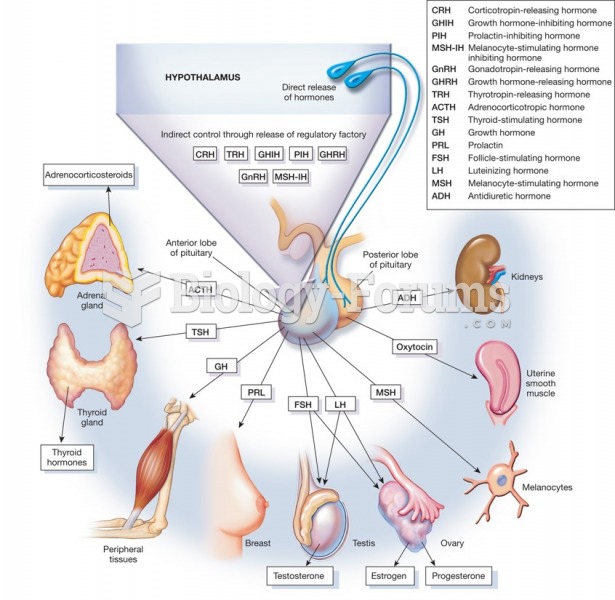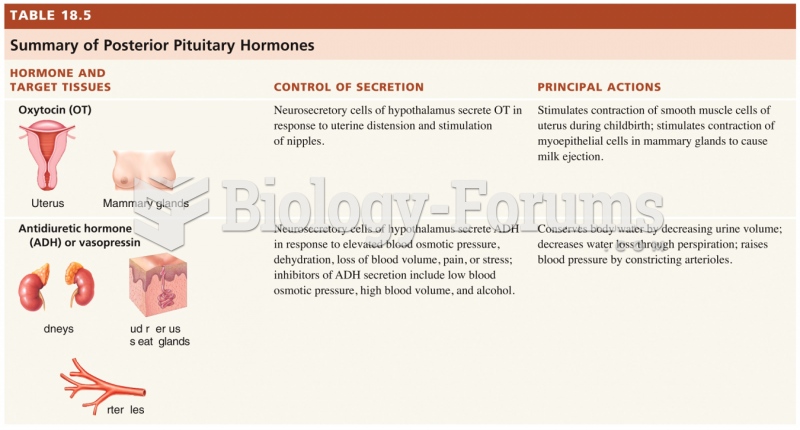Answer to Question 1
The hypothalamus of the diencephalon consists of powerful nuclei that regulate, control, or are involved with most of the body's central and autonomic nervous system activities during the fight-or-flight reaction. This center for the fight-or-flight reaction became activated once you became consciously aware of the potential threat of the bang sound.
The hypothalamus exerts direct control over fight-or-flight activities during stress through influencing the brain stem to activate sympathetic responses of the viscera and indirect control through its connection to the master gland, the pituitary, to stimulate the endocrine system to facilitate a wide range of fight-or-flight responses. The hypothalamus is responsive to the neocortical command centers, including those involved with cognitions and emotional states, such as the frontal cortex (the outer covering of the brain behind the forehead). The primary emotional arousal states of fear linked to flight and anger linked to fight are strongly associated with the hypothalamus. Electrical stimulation of the posterior (back) region of the hypothalamus produces arousal like when you awakened from sleep after hearing the bang whereas stimulation of the anterior (front) region and the adjacent basal forebrain region produces sleep.
Answer to Question 2
Not everyone suffers from PTSD or other impairments in ability to function following trauma and only a minority develop PTSD. Some may even have transcendent experiences or find meaning in suffering. In the days following the experience of psychological trauma, individuals may have at minimum subclinical symptoms or brief reactive symptoms (less intense or temporary symptoms than would be associated with PTSD), though they may have no long-term resulting functional impairment. In time, a certain percentage of people exposed to traumatic events ultimately experience positive changes. These individuals are said to have experienced posttraumatic growth.







